Searched: Their
News
 Families of hostages criticize government's silence and lack of communication. They demand transparency and assert their right to be heard. Families of hostages criticize government's silence and lack of communication. They demand transparency and assert their right to be heard. |
For seven seasons, the show has offered a clichéd (and nostalgic) vision of how atheists and believers relate to each other.
 My mom was the one who told me to watch The Big Bang Theory. It was a show about nerds—and I was a nerd. She thought I’d enjoy it. A friend had already mentioned that the main character, Sheldon Cooper, was “exactly like” me. After I watched the show, at Mom’s encouragement, I joked that I had mixed feelings about the comparison.The Big Bang Theory was extremely popular and not just with my mom; at its height, it averaged 20 million viewers a night. But it never really resonated with actual dweebs. Its audience was largely Gen X women—not people who were Sheldon but people who “knew a Sheldon,” not the geeks themselves but their mothers and friends.It’s fitting, then, that the even-more-popular Big Bang spinoff would be Young Sheldon, a prequel about the title character’s childhood in East Texas—and that Sheldon’s relationship with his mom, Mary, would be at the heart of the show. Young Sheldon sits at the top of the prime-time rankings; one recent week, the show (which streams on Netflix, Max, and Paramount+) topped all streamed content across US household televisions.As Young Sheldon comes to an end (its series finale airs May 16; a spinoff starring two breakout characters—Georgie and Mandy—has already been announced), so too does the onscreen dynamic between Sheldon and Mary. So too does a nostalgic vision for how the “science vs. religion” debate plays out in our families.Mary is Sheldon’s opposite in nearly every way. He’s a logical atheist physicist with no people skills; Mary is a warm, folksy conservative Christian. In many ways, she serves as an audience surrogate. (For what it’s worth, Mary was my ...Continue reading... My mom was the one who told me to watch The Big Bang Theory. It was a show about nerds—and I was a nerd. She thought I’d enjoy it. A friend had already mentioned that the main character, Sheldon Cooper, was “exactly like” me. After I watched the show, at Mom’s encouragement, I joked that I had mixed feelings about the comparison.The Big Bang Theory was extremely popular and not just with my mom; at its height, it averaged 20 million viewers a night. But it never really resonated with actual dweebs. Its audience was largely Gen X women—not people who were Sheldon but people who “knew a Sheldon,” not the geeks themselves but their mothers and friends.It’s fitting, then, that the even-more-popular Big Bang spinoff would be Young Sheldon, a prequel about the title character’s childhood in East Texas—and that Sheldon’s relationship with his mom, Mary, would be at the heart of the show. Young Sheldon sits at the top of the prime-time rankings; one recent week, the show (which streams on Netflix, Max, and Paramount+) topped all streamed content across US household televisions.As Young Sheldon comes to an end (its series finale airs May 16; a spinoff starring two breakout characters—Georgie and Mandy—has already been announced), so too does the onscreen dynamic between Sheldon and Mary. So too does a nostalgic vision for how the “science vs. religion” debate plays out in our families.Mary is Sheldon’s opposite in nearly every way. He’s a logical atheist physicist with no people skills; Mary is a warm, folksy conservative Christian. In many ways, she serves as an audience surrogate. (For what it’s worth, Mary was my ...Continue reading... |
Māori Christians in New Zealand bristle at newly translated portions of the Bible that use the names of local deities.
 Last year, Bible Society New Zealand (BSNZ) released a 109-page booklet with 10 Bible passages published in a contemporary Māori translation for the first time. The version used the names of atua Māori, or Māori gods and deities, in place of words like heaven, earth, land, and sea. Genesis 1:1, for example, says that in the beginning, God made Rangi-nui (Sky Father) and Papatūānuku (Earth Mother) instead of rangi and whenua respectively.The changes, meant to appeal to younger Māori, stirred debate. While some readers praised the changes (“The terms are more relatable,” wrote one respondent in a BSNZ survey), many, including Māori theologians and church leaders, decried the use of atua Māori in the Scriptures as “twisted” and “blasphemous.”The aim of publishing He Tīmatanga (A Beginning) was not to present a final translation but to offer a draft for feedback, said Clare Knowles, translation coordinator at BSNZ. Publishing these passages was part of an effort that began in 2008 to “retranslate the entire Bible into Māori [in] today’s language.”While Māori speakers in New Zealand have a Bible translation in their language, it was last revised in 1952. The most recent edition in 2012 mainly focused on reformatting the text with updated paragraphs, spelling, and punctuation, but the content has largely remained the same since missionaries first translated the Bible into Māori in the 19th century.“Imagine if the only English translation we had was the King James Version. … This is a bit like the situation with Te Paipera Tapu, the Māori Bible,” Knowles wrote in an article promoting He Tīmatanga.In New Zealand, about 8 percent of the population speak Māori, ...Continue reading... Last year, Bible Society New Zealand (BSNZ) released a 109-page booklet with 10 Bible passages published in a contemporary Māori translation for the first time. The version used the names of atua Māori, or Māori gods and deities, in place of words like heaven, earth, land, and sea. Genesis 1:1, for example, says that in the beginning, God made Rangi-nui (Sky Father) and Papatūānuku (Earth Mother) instead of rangi and whenua respectively.The changes, meant to appeal to younger Māori, stirred debate. While some readers praised the changes (“The terms are more relatable,” wrote one respondent in a BSNZ survey), many, including Māori theologians and church leaders, decried the use of atua Māori in the Scriptures as “twisted” and “blasphemous.”The aim of publishing He Tīmatanga (A Beginning) was not to present a final translation but to offer a draft for feedback, said Clare Knowles, translation coordinator at BSNZ. Publishing these passages was part of an effort that began in 2008 to “retranslate the entire Bible into Māori [in] today’s language.”While Māori speakers in New Zealand have a Bible translation in their language, it was last revised in 1952. The most recent edition in 2012 mainly focused on reformatting the text with updated paragraphs, spelling, and punctuation, but the content has largely remained the same since missionaries first translated the Bible into Māori in the 19th century.“Imagine if the only English translation we had was the King James Version. … This is a bit like the situation with Te Paipera Tapu, the Māori Bible,” Knowles wrote in an article promoting He Tīmatanga.In New Zealand, about 8 percent of the population speak Māori, ...Continue reading... |
Over 1,600 individuals publicly declare their faith at The Church of Eleven22's record-breaking beach baptism.
|
In an interview on the "Dr. Phil Primetime" show on Friday, Israeli Prime Minister Prime Benjamin Netanyahu hopes that he and President Joe Biden can resolve their differences regarding the war in Gaza after Biden withheld some weapons from Israel.
|
Target announced that only select stores will sell their Pride Month collection this June following backlash and a boycott last year.
|
Members of Crossroads Ministries in Finleyville, Pa., were worshiping Saturday night a few minutes after 6 p.m. when the twister passed through town, hitting their building. A few people sustained cuts and bruises, but no serious injuries.
|
Asian Christians must navigate ethical dilemmas in everyday life. This recent book can help.
 There are rules to follow in every culture, particularly in Asia, where many children must bear the responsibility of maintaining harmony within the home and familial structure. To deviate from the norms or traditions of any Asian society requires a bold willingness to try to demonstrate to one’s fellow citizens what is and is not working in their culture. As a Christian living or ministering in an Asian context, how can one manage these complex situations?The contributors to Asian Christian Ethics, an anthology published in 2022, grapple with the challenges Asian Christians face in their particular social contexts, often characterized by strictly defined societal ranking and hierarchy, religious violence against Christians, or suffering among marginalized groups. The theologians, pastors, and missiologists who authored this volume come from the Philippines, Malaysia, China/Hong Kong, Singapore, Sri Lanka, and Korea, plus one perspective from Palestine. The writers, many of whom studied in the West and are familiar with Western ways of thinking, provide valuable insight into Asian mindsets.Each chapter begins by examining what Scripture teaches on a particular social issue. Then the writers draw on their expertise to address the ethical challenges surrounding that issue within a specific cultural context.Marriage and divorceIn “Water Is Thicker Than Blood,” Bernard Wong offers insights on the changing views of traditional marriage. He notes that divorce has become more prevalent in Asian society (though not yet as normalized as in Western cultures) and that young adults are waiting longer to get married, with over 90 percent of 20-to-24-year-olds still single in Hong Kong, Japan, South Korea, Taiwan, and ...Continue reading... There are rules to follow in every culture, particularly in Asia, where many children must bear the responsibility of maintaining harmony within the home and familial structure. To deviate from the norms or traditions of any Asian society requires a bold willingness to try to demonstrate to one’s fellow citizens what is and is not working in their culture. As a Christian living or ministering in an Asian context, how can one manage these complex situations?The contributors to Asian Christian Ethics, an anthology published in 2022, grapple with the challenges Asian Christians face in their particular social contexts, often characterized by strictly defined societal ranking and hierarchy, religious violence against Christians, or suffering among marginalized groups. The theologians, pastors, and missiologists who authored this volume come from the Philippines, Malaysia, China/Hong Kong, Singapore, Sri Lanka, and Korea, plus one perspective from Palestine. The writers, many of whom studied in the West and are familiar with Western ways of thinking, provide valuable insight into Asian mindsets.Each chapter begins by examining what Scripture teaches on a particular social issue. Then the writers draw on their expertise to address the ethical challenges surrounding that issue within a specific cultural context.Marriage and divorceIn “Water Is Thicker Than Blood,” Bernard Wong offers insights on the changing views of traditional marriage. He notes that divorce has become more prevalent in Asian society (though not yet as normalized as in Western cultures) and that young adults are waiting longer to get married, with over 90 percent of 20-to-24-year-olds still single in Hong Kong, Japan, South Korea, Taiwan, and ...Continue reading... |
The Uniform Civil Code seeks “one nation, one law” to govern citizens' personal lives, but religious minorities fear hidden costs.
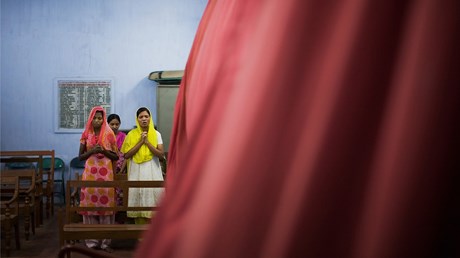 In February, the northern Indian state of Uttarakhand passed a Uniform Civil Code (UCC), which aims to implement a common set of rules governing crucial aspects of life, including marriage, divorce, inheritance, and adoption.This code would supplant existing personal laws that religious groups in India currently ascribe to. Personal laws cover family-related matters such as marriage, divorce, child custody, adoption, property rights, and inheritance.If the ruling Hindu-led Bharatiya Janata Party (BJP) has its way, a UCC will eventually be implemented across all of India. (At present, Goa is the only other state with a UCC, derived from the Portuguese-era Civil Code of 1867.)The BJP’s push to implement a national UCC may bring relief for Christians in India, especially in terms of women’s inheritance rights. Under existing personal laws, Christian mothers cannot inherit their deceased children’s property. The UCC proposes to eliminate discriminatory provisions that favor male inheritance, potentially leading to more equitable inheritance rights for Christian women.But few of India’s religious minorities trust the BJP, whose policies have often been more harmful than helpful to Christian communities. In Assam, Christian leaders protested the passing of a bill banning “magical healing” as it unfairly impacted their custom of praying for the sick. Ministries including World Vision and the Evangelical Fellowship of India recently lost government authorization to collect foreign donations. Nine states now have anti-conversion laws in place, and believers have borne the brunt of religious unrest in these areas as a result.As this year’s general elections seem likely ...Continue reading... In February, the northern Indian state of Uttarakhand passed a Uniform Civil Code (UCC), which aims to implement a common set of rules governing crucial aspects of life, including marriage, divorce, inheritance, and adoption.This code would supplant existing personal laws that religious groups in India currently ascribe to. Personal laws cover family-related matters such as marriage, divorce, child custody, adoption, property rights, and inheritance.If the ruling Hindu-led Bharatiya Janata Party (BJP) has its way, a UCC will eventually be implemented across all of India. (At present, Goa is the only other state with a UCC, derived from the Portuguese-era Civil Code of 1867.)The BJP’s push to implement a national UCC may bring relief for Christians in India, especially in terms of women’s inheritance rights. Under existing personal laws, Christian mothers cannot inherit their deceased children’s property. The UCC proposes to eliminate discriminatory provisions that favor male inheritance, potentially leading to more equitable inheritance rights for Christian women.But few of India’s religious minorities trust the BJP, whose policies have often been more harmful than helpful to Christian communities. In Assam, Christian leaders protested the passing of a bill banning “magical healing” as it unfairly impacted their custom of praying for the sick. Ministries including World Vision and the Evangelical Fellowship of India recently lost government authorization to collect foreign donations. Nine states now have anti-conversion laws in place, and believers have borne the brunt of religious unrest in these areas as a result.As this year’s general elections seem likely ...Continue reading... |
In the country's most secular state, tiny congregations have made a big impact by their disaster response.
 For weeks, Tárik Rodriguez had been working on bringing a guest preacher and worship leader from across the country to help his church celebrate its third anniversary. In 2021, Rodriguez and a small team launched Viela da Graça Igreja in Novo Hamburgo, a small city in Brazil’s most southern province, Rio Grande do Sul.Then, it started raining.The floods have done more than interrupt the small Reformed congregation’s celebratory plans. They’ve devastated the community. The storms that began at the end of April struck Rio Grande do Sul’s most densely populated areas and have killed at least 116 people. Around 130 people are still missing. The high water has closed roads and even the airport, which has grounded flights until May 30. As of Friday, May 10, nearly 400,000 people have been displaced from their homes and 70,772 are in public shelters.Some of those have found their way to Viela da Graça, which is located on higher ground and has been largely protected from a water breach. Since May 4, Rodriguez and members of the 75-person congregation have been hosting around 50 people in a two-bathroom, 3,500-square-foot building.“As Christians, we needed to open our doors,” Rodriguez says. “And that’s what we did.”Beyond the bathroom constraints, the situation has been less than ideal. There are frequent power cuts (1.2 million people have been affected by outages) and the building has lost access to both running and potable water because the sanitation company cannot treat the dirty floodwaters. A nearby residential condominium, which gets its water from a well, has provided drinking water and showers.Continue reading... For weeks, Tárik Rodriguez had been working on bringing a guest preacher and worship leader from across the country to help his church celebrate its third anniversary. In 2021, Rodriguez and a small team launched Viela da Graça Igreja in Novo Hamburgo, a small city in Brazil’s most southern province, Rio Grande do Sul.Then, it started raining.The floods have done more than interrupt the small Reformed congregation’s celebratory plans. They’ve devastated the community. The storms that began at the end of April struck Rio Grande do Sul’s most densely populated areas and have killed at least 116 people. Around 130 people are still missing. The high water has closed roads and even the airport, which has grounded flights until May 30. As of Friday, May 10, nearly 400,000 people have been displaced from their homes and 70,772 are in public shelters.Some of those have found their way to Viela da Graça, which is located on higher ground and has been largely protected from a water breach. Since May 4, Rodriguez and members of the 75-person congregation have been hosting around 50 people in a two-bathroom, 3,500-square-foot building.“As Christians, we needed to open our doors,” Rodriguez says. “And that’s what we did.”Beyond the bathroom constraints, the situation has been less than ideal. There are frequent power cuts (1.2 million people have been affected by outages) and the building has lost access to both running and potable water because the sanitation company cannot treat the dirty floodwaters. A nearby residential condominium, which gets its water from a well, has provided drinking water and showers.Continue reading... |
Matthew Warner, who had tweeted about gay marriage, is the latest in a string of Christian college faculty who have lost their jobs after being accused of theological misalignment.
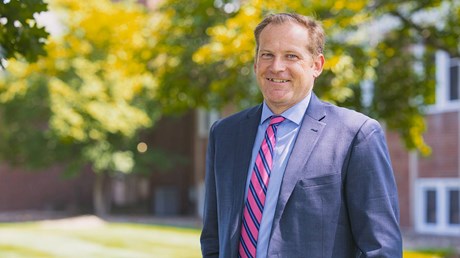 With glowing performance reviews and above-average student evaluations, by most measures Matthew Warner’s first year as a communications professor at Grace College was a triumph.But he spent most of that first year knowing it could be his last. After four months on the job, Warner was informed by the school’s president, Drew Flamm, that the board had “come to the conclusion that we don’t think it works out to move forward,” according to a recording obtained by Religion News Service.Warner’s termination is the latest in a string of professor terminations at Christian colleges seemingly tied to clashes over narrowing and often unspoken political and theological criteria.While Flamm didn’t specify the reasons for Warner’s dismissal, it was preceded by an online termination campaign clear about its goals. Launched by conservative influencers and Grace College stakeholders, the campaign demanded Warner’s removal due to his social media posts about LGBTQ rights, Black Lives Matter, and critiques of the GOP. Almost all the posts predated Warner’s employment at the college.Grace College declined to answer questions about Warner, saying it was a personnel matter. “Dr. Matt Warner fulfilled his agreement for the year. Grace College wishes Dr. Warner well in his future endeavors,” Norm Bakhit, Grace College’s chief officer of human resources, told RNS in a statement. Flamm did not offer further comment.Warner and his wife said they both left behind jobs and sold their home in metro Detroit to move with their three kids to Warsaw, Indiana, for Warner’s job at Grace. It was his dream position, they said, and noted that they gave up 60 percent of their ...Continue reading... With glowing performance reviews and above-average student evaluations, by most measures Matthew Warner’s first year as a communications professor at Grace College was a triumph.But he spent most of that first year knowing it could be his last. After four months on the job, Warner was informed by the school’s president, Drew Flamm, that the board had “come to the conclusion that we don’t think it works out to move forward,” according to a recording obtained by Religion News Service.Warner’s termination is the latest in a string of professor terminations at Christian colleges seemingly tied to clashes over narrowing and often unspoken political and theological criteria.While Flamm didn’t specify the reasons for Warner’s dismissal, it was preceded by an online termination campaign clear about its goals. Launched by conservative influencers and Grace College stakeholders, the campaign demanded Warner’s removal due to his social media posts about LGBTQ rights, Black Lives Matter, and critiques of the GOP. Almost all the posts predated Warner’s employment at the college.Grace College declined to answer questions about Warner, saying it was a personnel matter. “Dr. Matt Warner fulfilled his agreement for the year. Grace College wishes Dr. Warner well in his future endeavors,” Norm Bakhit, Grace College’s chief officer of human resources, told RNS in a statement. Flamm did not offer further comment.Warner and his wife said they both left behind jobs and sold their home in metro Detroit to move with their three kids to Warsaw, Indiana, for Warner’s job at Grace. It was his dream position, they said, and noted that they gave up 60 percent of their ...Continue reading... |
Long-shot campaign needs 15,000 signatures for the chance to get on the ballot.
 Eye-catching election placards are popping up across the European Union. They appear overnight in public squares and in front of train stations, along the Autobahn and the Champs-Élysées and many lesser-known rues, strassen, and calles.With bright colors and bold slogans, each promises to make a difference in the European Parliament, if only passersby will vote for their party in the upcoming election.“Make Europe strong,” says one.“Make it happen,” urges another.And there’s a new slogan for a new party in Spain: “United in values, guided by faith.”The sign asks people to vote for Fe, Infancia, Educación, y Libertad (Faith, Childhood, Education, and Liberty) or FIEL, a new, explicitly evangelical Christian party. The party’s candidate for the European Parliament may not actually appear on ballots in June, though. Before Juan José Cortés can stand for election, FIEL needs 15,000 signatures by May 12.“We are at a crucial moment,” party president Salvador Martí wrote in a recent campaign letter. “Your signature is essential so that we can continue in the battle, and so that together we can work for a better future for all.”Martí acknowledges this is an uphill battle. Many experts say it’s basically impossible to build a new party from scratch out of a tiny religious minority. Evangelicals make up about 2 percent of the Spanish population. There are fewer than 5,000 evangelical congregations in the whole country, even with the recent increase in evangelical immigrants.“We do not want to settle for the obstacles that say that it is not possible to build a party built by citizens like you and me ...Continue reading... Eye-catching election placards are popping up across the European Union. They appear overnight in public squares and in front of train stations, along the Autobahn and the Champs-Élysées and many lesser-known rues, strassen, and calles.With bright colors and bold slogans, each promises to make a difference in the European Parliament, if only passersby will vote for their party in the upcoming election.“Make Europe strong,” says one.“Make it happen,” urges another.And there’s a new slogan for a new party in Spain: “United in values, guided by faith.”The sign asks people to vote for Fe, Infancia, Educación, y Libertad (Faith, Childhood, Education, and Liberty) or FIEL, a new, explicitly evangelical Christian party. The party’s candidate for the European Parliament may not actually appear on ballots in June, though. Before Juan José Cortés can stand for election, FIEL needs 15,000 signatures by May 12.“We are at a crucial moment,” party president Salvador Martí wrote in a recent campaign letter. “Your signature is essential so that we can continue in the battle, and so that together we can work for a better future for all.”Martí acknowledges this is an uphill battle. Many experts say it’s basically impossible to build a new party from scratch out of a tiny religious minority. Evangelicals make up about 2 percent of the Spanish population. There are fewer than 5,000 evangelical congregations in the whole country, even with the recent increase in evangelical immigrants.“We do not want to settle for the obstacles that say that it is not possible to build a party built by citizens like you and me ...Continue reading... |
The Uniform Civil Code seeks “one nation, one law” to govern citizens' personal lives, but religious minorities fear hidden costs.
 In February, the northern Indian state of Uttarakhand passed a Uniform Civil Code (UCC), which aims to implement a common set of rules governing crucial aspects of life, including marriage, divorce, inheritance, and adoption.This code would supplant existing personal laws that religious groups in India currently ascribe to. Personal laws cover family-related matters such as marriage, divorce, child custody, adoption, property rights, and inheritance.If the ruling Hindu-led Bharatiya Janata Party (BJP) has its way, a UCC will eventually be implemented across all of India. (At present, Goa is the only other state with a UCC, derived from the Portuguese-era Civil Code of 1867.)The BJP’s push to implement a national UCC may bring relief for Christians in India, especially in terms of women’s inheritance rights. Under existing personal laws, Christian mothers cannot inherit their deceased children’s property. The UCC proposes to eliminate discriminatory provisions that favor male inheritance, potentially leading to more equitable inheritance rights for Christian women.But few of India’s religious minorities trust the BJP, whose policies have often been more harmful than helpful to Christian communities. In Assam, Christian leaders protested the passing of a bill banning “magical healing” as it unfairly impacted their custom of praying for the sick. Ministries including World Vision and the Evangelical Fellowship of India recently lost government authorization to collect foreign donations. Nine states now have anti-conversion laws in place, and believers have borne the brunt of religious unrest in these areas as a result.As this year’s general elections seem likely ...Continue reading... In February, the northern Indian state of Uttarakhand passed a Uniform Civil Code (UCC), which aims to implement a common set of rules governing crucial aspects of life, including marriage, divorce, inheritance, and adoption.This code would supplant existing personal laws that religious groups in India currently ascribe to. Personal laws cover family-related matters such as marriage, divorce, child custody, adoption, property rights, and inheritance.If the ruling Hindu-led Bharatiya Janata Party (BJP) has its way, a UCC will eventually be implemented across all of India. (At present, Goa is the only other state with a UCC, derived from the Portuguese-era Civil Code of 1867.)The BJP’s push to implement a national UCC may bring relief for Christians in India, especially in terms of women’s inheritance rights. Under existing personal laws, Christian mothers cannot inherit their deceased children’s property. The UCC proposes to eliminate discriminatory provisions that favor male inheritance, potentially leading to more equitable inheritance rights for Christian women.But few of India’s religious minorities trust the BJP, whose policies have often been more harmful than helpful to Christian communities. In Assam, Christian leaders protested the passing of a bill banning “magical healing” as it unfairly impacted their custom of praying for the sick. Ministries including World Vision and the Evangelical Fellowship of India recently lost government authorization to collect foreign donations. Nine states now have anti-conversion laws in place, and believers have borne the brunt of religious unrest in these areas as a result.As this year’s general elections seem likely ...Continue reading... |
A Georgia elementary school banned two children from sharing Easter Eggs with their classmates because the plastic eggs contained a […]
|
By Kate Kheel from Safe Tech International The killdeer bird is a fascinating species. They lay their eggs in nests made of a few twigs...A Mama Killdeer's Love, A Boy, His Sister, and Tech
|
 A 26-year-old man is facing charges of criminal homicide after authorities discovered his cousin dead in their shared residence in North Braddock, Pennsylvania, hours before he attempted to shoot a local pastor during a Sunday worship service. A 26-year-old man is facing charges of criminal homicide after authorities discovered his cousin dead in their shared residence in North Braddock, Pennsylvania, hours before he attempted to shoot a local pastor during a Sunday worship service. |
The Uniform Civil Code seeks "one nation, one law" to govern citizens' personal lives, but religious minorities fear hidden costs.
 In February, the northern Indian state of Uttarakhand passed a Uniform Civil Code (UCC), which aims to implement a common set of rules governing crucial aspects of life, including marriage, divorce, inheritance, and adoption.This code would supplant existing personal laws that religious groups in India currently ascribe to. Personal laws cover family-related matters such as marriage, divorce, child custody, adoption, property rights, and inheritance.If the ruling Hindu-led Bharatiya Janata Party (BJP) has its way, a UCC will eventually be implemented across all of India. (At present, Goa is the only other state with a UCC, derived from the Portuguese-era Civil Code of 1867.)The BJP’s push to implement a national UCC may bring relief for Christians in India, especially in terms of women’s inheritance rights. Under existing personal laws, Christian mothers cannot inherit their deceased children’s property. The UCC proposes to eliminate discriminatory provisions that favor male inheritance, potentially leading to more equitable inheritance rights for Christian women.But few of India’s religious minorities trust the BJP, whose policies have often been more harmful than helpful to Christian communities. In Assam, Christian leaders protested the passing of a bill banning “magical healing” as it unfairly impacted their custom of praying for the sick. Ministries including World Vision and the Evangelical Fellowship of India recently lost government authorization to collect foreign donations. Nine states now have anti-conversion laws in place, and believers have borne the brunt of religious unrest in these areas as a result.As this year’s general elections seem likely ...Continue reading... In February, the northern Indian state of Uttarakhand passed a Uniform Civil Code (UCC), which aims to implement a common set of rules governing crucial aspects of life, including marriage, divorce, inheritance, and adoption.This code would supplant existing personal laws that religious groups in India currently ascribe to. Personal laws cover family-related matters such as marriage, divorce, child custody, adoption, property rights, and inheritance.If the ruling Hindu-led Bharatiya Janata Party (BJP) has its way, a UCC will eventually be implemented across all of India. (At present, Goa is the only other state with a UCC, derived from the Portuguese-era Civil Code of 1867.)The BJP’s push to implement a national UCC may bring relief for Christians in India, especially in terms of women’s inheritance rights. Under existing personal laws, Christian mothers cannot inherit their deceased children’s property. The UCC proposes to eliminate discriminatory provisions that favor male inheritance, potentially leading to more equitable inheritance rights for Christian women.But few of India’s religious minorities trust the BJP, whose policies have often been more harmful than helpful to Christian communities. In Assam, Christian leaders protested the passing of a bill banning “magical healing” as it unfairly impacted their custom of praying for the sick. Ministries including World Vision and the Evangelical Fellowship of India recently lost government authorization to collect foreign donations. Nine states now have anti-conversion laws in place, and believers have borne the brunt of religious unrest in these areas as a result.As this year’s general elections seem likely ...Continue reading... |
It wasn't only because of missionaries from the West, says a Tongan Australian theologian.
 Christian overseas missionaries were more successful in Oceania—the region spanning the Pacific Islands, Australia, Papua New Guinea, and New Zealand—than anywhere else in the world.In particular, people in the Pacific Islands (which include Fiji, Papua New Guinea, Samoa, Vanuatu, Tonga, and more) were receptive to the gospel because “their ancestors’ strong beliefs in a divine presence and in the afterlife made them very open to Christian faith,” wrote Jacqueline Ryle, a contributor to the 2021 reference volume Christianity in Oceania. Tongan Australian theologian Katalina Tahaafe-Williams says her research reveals the same: The growth of Christianity in the region was not because of white Europeans but rather due to Indigenous missionaries who translated Christianity in a way that made sense to locals.Tahaafe-Williams, who lives in Sydney, served as the Indigenous coeditor for the book alongside prominent global Christianity scholars Kenneth R. Ross and Todd M. Johnson.“Our goal was to recruit Indigenous writers from all over the region to contribute to this volume,” she explained. “It was my task to connect with potential authors, theologians, leaders, and church members from the Pacific Islands … we were very committed to finding, however challenging it might be, authors who were part of that particular culture, thereby making the work very authentic.”CT Global books editor Geethanjali Tupps spoke with Tahaafe-Williams on why Christianity flourished in the Pacific Islands, how migration patterns have impacted the church, and why the region shouldn’t serve as the poster child for climate change issues.Continue reading... Christian overseas missionaries were more successful in Oceania—the region spanning the Pacific Islands, Australia, Papua New Guinea, and New Zealand—than anywhere else in the world.In particular, people in the Pacific Islands (which include Fiji, Papua New Guinea, Samoa, Vanuatu, Tonga, and more) were receptive to the gospel because “their ancestors’ strong beliefs in a divine presence and in the afterlife made them very open to Christian faith,” wrote Jacqueline Ryle, a contributor to the 2021 reference volume Christianity in Oceania. Tongan Australian theologian Katalina Tahaafe-Williams says her research reveals the same: The growth of Christianity in the region was not because of white Europeans but rather due to Indigenous missionaries who translated Christianity in a way that made sense to locals.Tahaafe-Williams, who lives in Sydney, served as the Indigenous coeditor for the book alongside prominent global Christianity scholars Kenneth R. Ross and Todd M. Johnson.“Our goal was to recruit Indigenous writers from all over the region to contribute to this volume,” she explained. “It was my task to connect with potential authors, theologians, leaders, and church members from the Pacific Islands … we were very committed to finding, however challenging it might be, authors who were part of that particular culture, thereby making the work very authentic.”CT Global books editor Geethanjali Tupps spoke with Tahaafe-Williams on why Christianity flourished in the Pacific Islands, how migration patterns have impacted the church, and why the region shouldn’t serve as the poster child for climate change issues.Continue reading... |
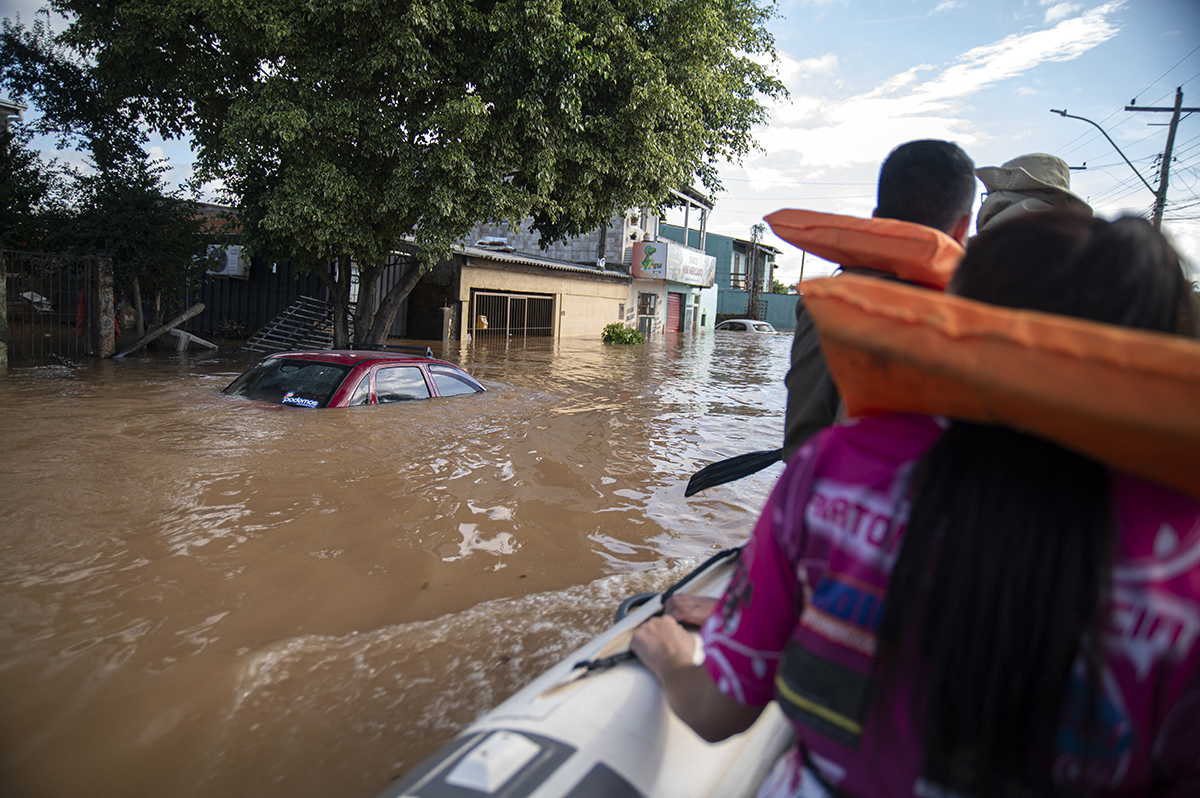 Local churches across southern Brazil have opened their doors to provide shelter and aid to residents in areas of the country that have been devastated by catastrophic floods? that have claimed the lives of at least 136 people and left around 537,000 displaced.? Local churches across southern Brazil have opened their doors to provide shelter and aid to residents in areas of the country that have been devastated by catastrophic floods? that have claimed the lives of at least 136 people and left around 537,000 displaced.? |
 Advocates of physician-assisted suicide lobbied lawmakers in New York Tuesday to pass legislation that would make it legal for terminally ill patients to request and use medication to end their lives but many local leaders in the Catholic Church and health experts oppose the idea. Advocates of physician-assisted suicide lobbied lawmakers in New York Tuesday to pass legislation that would make it legal for terminally ill patients to request and use medication to end their lives but many local leaders in the Catholic Church and health experts oppose the idea. |
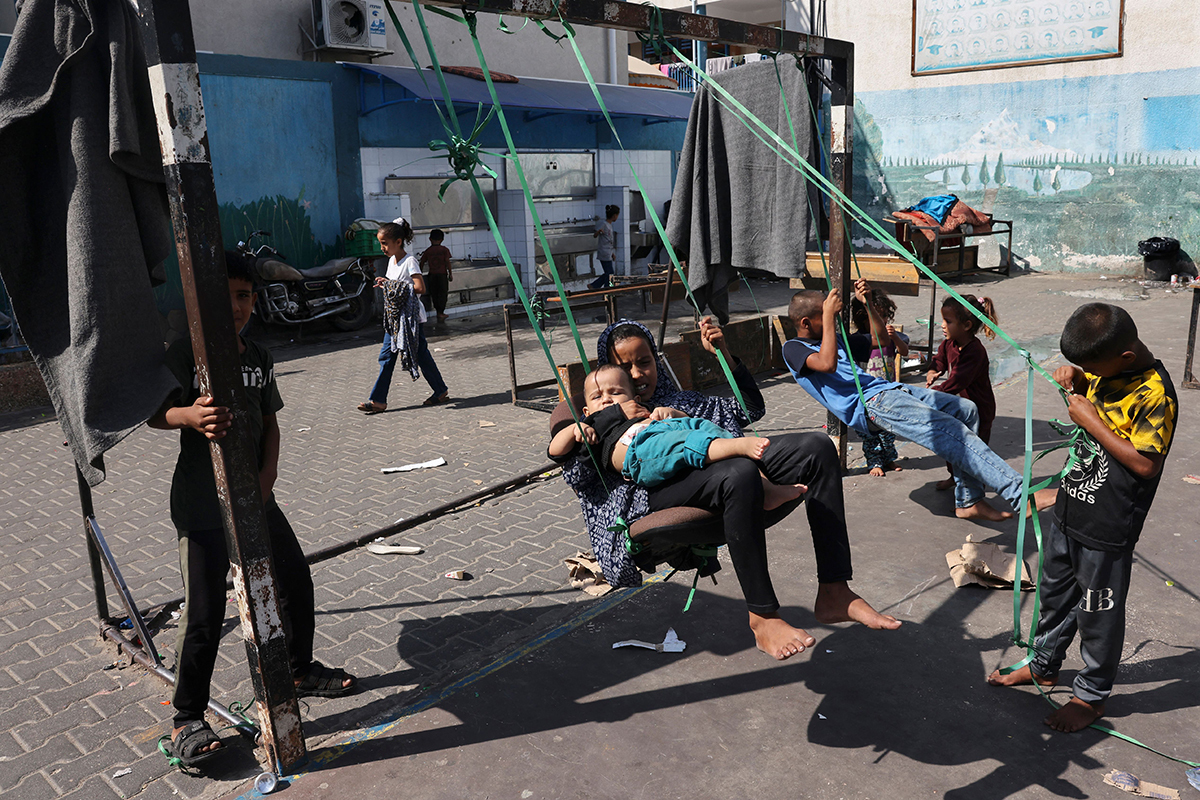 A United Nations watchdog organization published a series of chat room posts by Palestinians purportedly accusing U.N. Relief and Works Agency staff members of stealing humanitarian aid intended for civilians and selling it or hoarding it in their homes. A United Nations watchdog organization published a series of chat room posts by Palestinians purportedly accusing U.N. Relief and Works Agency staff members of stealing humanitarian aid intended for civilians and selling it or hoarding it in their homes. |
A majority of American Protestants were raised by devout mothers, a study finds.
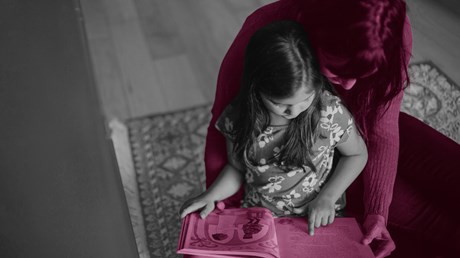 The vast majority of American Christians were raised in the faith—and most can point to the influence of their moms.In a 2023 study, the American Bible Society found that a majority of believers remain in the same religious tradition as their mothers. This agrees with a large body of mainstream social science research dating back to the 1970s that says the active faith of mothers is a strong predictor of religious transmission.Some of this may be attributed to the natural bond children have with their mothers. But there is also research that shows that moms take a more active role in faith formation in America.A 2019 Barna Group survey found that Christian teenagers who say their faith is very important to them are 20 points more likely to talk to their moms about religion than their dads. More than 70 percent of Christian teenagers read the Bible, 70 percent talk about God, and 63 percent pray with their moms.Continue reading... The vast majority of American Christians were raised in the faith—and most can point to the influence of their moms.In a 2023 study, the American Bible Society found that a majority of believers remain in the same religious tradition as their mothers. This agrees with a large body of mainstream social science research dating back to the 1970s that says the active faith of mothers is a strong predictor of religious transmission.Some of this may be attributed to the natural bond children have with their mothers. But there is also research that shows that moms take a more active role in faith formation in America.A 2019 Barna Group survey found that Christian teenagers who say their faith is very important to them are 20 points more likely to talk to their moms about religion than their dads. More than 70 percent of Christian teenagers read the Bible, 70 percent talk about God, and 63 percent pray with their moms.Continue reading... |
 Female student-athletes who protested a court decision invalidating a law requiring athletes to compete on sports teams that match their biological sex can continue to participate in track meets, a judge has ruled. Female student-athletes who protested a court decision invalidating a law requiring athletes to compete on sports teams that match their biological sex can continue to participate in track meets, a judge has ruled. |
Freed from serious critique by non-Darwinists, evolutionists can twist any data into support for their Darwinist ideology.
|
In the country's most secular state, tiny congregations have made a big impact by their disaster response.
 For weeks, Tárik Rodriguez had been working on bringing a guest preacher and worship leader from across the country to help his church celebrate its third anniversary. In 2021, Rodriguez and a small team launched Viela da Graça Igreja in Novo Hamburgo, a small city in Brazil’s most southern province, Rio Grande do Sul.Then, it started raining.The floods have done more than interrupt the small Reformed congregation’s celebratory plans. They’ve devastated the community. The storms that began at the end of April struck Rio Grande do Sul’s most densely populated areas and have killed at least 116 people. Around 130 people are still missing. The high water has closed roads and even the airport, which has grounded flights until May 30. As of Friday, May 10, nearly 400,000 people have been displaced from their homes and 70,772 are in public shelters.Some of those have found their way to Viela da Graça, which is located on higher ground and has been largely protected from a water breach. Since May 4, Rodriguez and members of the 75-person congregation have been hosting around 50 people in a two-bathroom, 3,500-square-foot building.“As Christians, we needed to open our doors,” Rodriguez says. “And that’s what we did.”Beyond the bathroom constraints, the situation has been less than ideal. There are frequent power cuts (1.2 million people have been affected by outages) and the building has lost access to both running and potable water because the sanitation company cannot treat the dirty floodwaters. A nearby residential condominium, which gets its water from a well, has provided drinking water and showers.Continue reading... For weeks, Tárik Rodriguez had been working on bringing a guest preacher and worship leader from across the country to help his church celebrate its third anniversary. In 2021, Rodriguez and a small team launched Viela da Graça Igreja in Novo Hamburgo, a small city in Brazil’s most southern province, Rio Grande do Sul.Then, it started raining.The floods have done more than interrupt the small Reformed congregation’s celebratory plans. They’ve devastated the community. The storms that began at the end of April struck Rio Grande do Sul’s most densely populated areas and have killed at least 116 people. Around 130 people are still missing. The high water has closed roads and even the airport, which has grounded flights until May 30. As of Friday, May 10, nearly 400,000 people have been displaced from their homes and 70,772 are in public shelters.Some of those have found their way to Viela da Graça, which is located on higher ground and has been largely protected from a water breach. Since May 4, Rodriguez and members of the 75-person congregation have been hosting around 50 people in a two-bathroom, 3,500-square-foot building.“As Christians, we needed to open our doors,” Rodriguez says. “And that’s what we did.”Beyond the bathroom constraints, the situation has been less than ideal. There are frequent power cuts (1.2 million people have been affected by outages) and the building has lost access to both running and potable water because the sanitation company cannot treat the dirty floodwaters. A nearby residential condominium, which gets its water from a well, has provided drinking water and showers.Continue reading... |



 Links
Links  Articles
Articles  Blogs
Blogs  Videos
Videos  News
News  Colors
Colors 

 New links
New links

